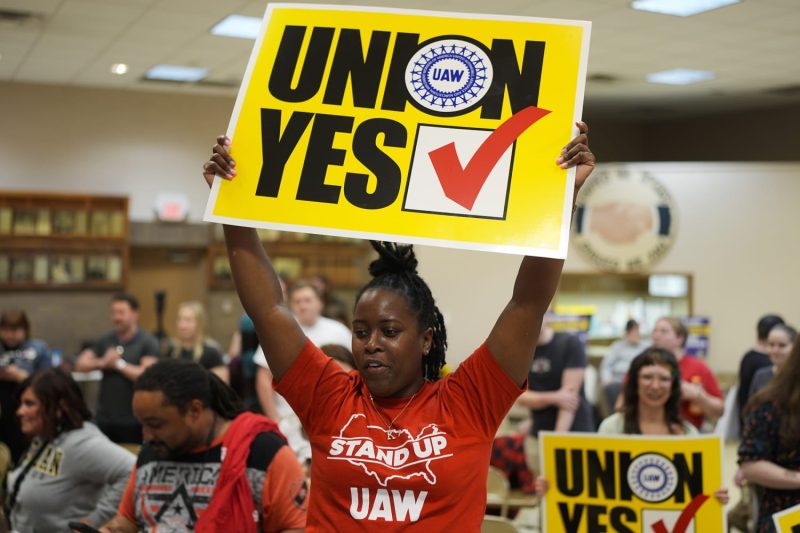In the challenging landscape of labor relations, the United Auto Workers (UAW) union has set its sights on a significant victory at the Mercedes-Benz plant in Alabama. The potential implications of this struggle go beyond the immediate workplace dynamics, encompassing broader themes of worker empowerment and corporate responsibility.
The UAW’s efforts to gain a foothold at the Mercedes plant have stirred up a buzz not only within the company but also in the wider labor movement. With the backing of prominent political figures and the support of other labor organizations, the UAW has entered into this battle with a sense of purpose and determination.
The key issues at stake revolve around the working conditions, pay scales, and overall treatment of the autoworkers at the Mercedes plant. The UAW argues that by unionizing, the workers would have a stronger voice in negotiating for fair wages, improved benefits, and better job security. This sentiment resonates with many who believe that unions play a vital role in balancing the power dynamics between labor and management.
On the other side of the coin, Mercedes-Benz has expressed concerns about the potential impact of unionization on its operations. The company emphasizes the need for flexibility and efficiency in a highly competitive industry, suggesting that the introduction of a union could disrupt existing processes and hinder the company’s ability to adapt to market changes.
Amidst these conflicting perspectives, the autoworkers find themselves at a crossroads, grappling with the decision of whether to unionize or not. For many, the prospect of collective bargaining brings a sense of hope and solidarity, a belief that together they can achieve better working conditions and a stronger voice in shaping their futures.
As the UAW continues its campaign at the Mercedes plant, the eyes of the labor movement are keenly focused on the unfolding events in Alabama. The outcome of this struggle could have far-reaching implications, sending a message to workers across the country about the power of collective action and the importance of fighting for fair treatment in the workplace.
In the end, the battle at the Mercedes-Benz plant in Alabama symbolizes more than just a clash of interests between labor and management. It embodies a larger struggle for dignity, respect, and equality in the workplace, echoing the timeless refrain that united we stand, divided we fall.

